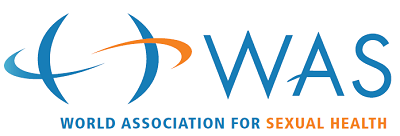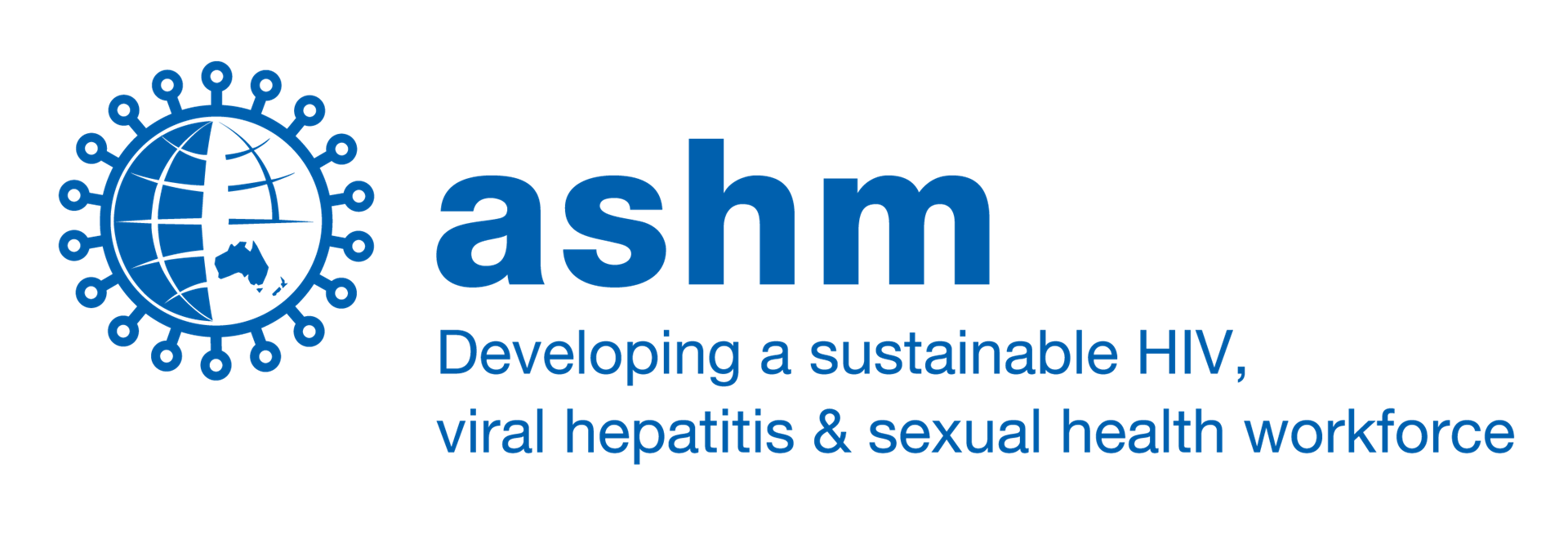Frequently Asked QuestionsMEMBERSHIPHow do I become a member? You can check the eligibility requirements and apply on our website. What is the difference between Student and General membership? General membership is considered at a higher level than that of a student membership. In terms of the benefits, you can access there is no difference between the membership levels. Students can still access free and reduced cost professional development opportunities and conferences, networking, and more. The main difference is the cost of membership for students is reduced to consider the difficulties of working and studying. Also, student members aren't eligible to hold committee positions (although they can upgrade to general member if they want to get more involved in that side of things). What's the difference between a general member and an accredited member? The main difference between the general and accredited member levels is the ability to use the protected title of ‘clinical psychosexual therapist’ or ‘sexuality educator’ under the accredited membership. Since sex therapy is not regulated in Australia, SAS has developed the accreditation pathway to allow therapists to use one of these protected titles to indicate that they have followed a standardized process of minimum training, qualification, experience, and supervision in their area of focus. What happens if I forget to renew my membership? You will be contacted by your branch membership officer to see if you need any assistance with renewals. If we don't hear from you within the specified timeframe your membership, and any associated accreditation, will be cancelled and you will need to reapply for membership through the portal. How do I become a member of SAS? If you meet the eligibility criteria the process is quite simple. You need to upload the requested paperwork and wait to have your application assessed. We require a bit more evidence than some other organisations because of the many pathways to sexology and our commitment to upholding ethics and professional practice. If you get stuck with an aspect of the application or have more questions you can reach out to our National Membership Officer. What are the benefits of membership? Being a member of SAS is about sharing a commitment to sexology as a profession. One of the many benefits that comes from this is the opportunity to meet like-minded professionals, build professional networks, and learn from experts in the field. Other benefits are access to professional development, opportunities to gain leadership experience through committees, reduced conference rates for WAS and AOFS, political advocacy for sexual rights, supervision and mentoring opportunities and more. I have finished studying now and want to upgrade from student to general member. Who do I need to contact? You can upgrade your membership from student to general yourself through the membership portal. In your profile you will be able to edit your member level. You can also contact the National Membership Officer to chat about upgrading and get assistance with the process. I've heard that sex workers can't be members of SAS. Is this true? This is incorrect. SAS has many members who are sex workers and as an organisation we publicly advocate for the decriminalisation of sex work. We have a public statement of support on the website and will be doing more advocacy work in the area as part of the strategic plan. The only distinction we have made is that people cannot be members of SAS if they are also working and promoting themselves as a sexological bodyworker. This is to protect the public from any confusion, and to maintain strong ethical boundaries and divisions between hands on and hands off therapeutic work. We strongly believe there are many ways for people to enhance their sexuality and sexbod workers can play an important role. They also have their own professional association and Code of Ethics. I deliver pleasure education to adults and want to become a member. What do I need to do to? General members are sexologists who come from a diverse range of backgrounds. The thing that separates our members from other people working in a sexuality space is their qualifications. If you meet our eligibility criteria, with qualifications in a sexual health, sexology, or allied health profession you can complete the application process online. Once you are a general member you can start to pursue an accreditation pathway as a sexuality educator, accumulating the required hours in delivery and mentoring. Do I still need to be a member of another organisation to practice as a therapist? Yes. To practice as any kind of counsellor in Australia you need to have primary registration with a governing body. This will depend on your qualifications and might include APS, AASW, ACA, RACGP, ACCP, AHPRA and PACFA. Who can I contact if I have more questions about membership? You can get in touch with the National Memberships Officer. EDUCATION/CAREERSI want to practice as a sex therapist in Australia. What qualifications do I need? You will need a qualification in a counselling/mental health area and primary registration with a governing body such as APHRA to work in Australia. To work ethically as a sex therapist you should have additional training in applying counselling skills in a psychosexual context. You can learn more about this pathway on our careers page. How do I become a sexologist? You can find out more about pathways to being a sexologist on our website. In Australia, sexology is a postgraduate specialisation that builds on a person's existing qualifications and experience. It depends on what area you want to work in as you will need an undergraduate degree that moves you in that direction. Can I talk to someone about a career in Sexology? We aren’t able to give individual career advice, but you can find out more about pathways on our website. In Australia sexology is a postgraduate specialisation that builds on a person’s existing qualifications and experience. It depends on what area you want to work in. For example, a person will be a qualified psychologist, social worker, or counsellor before pursuing a sexology qualification to become a psychosexual therapist. There are 2 universities in Australia (Curtin University and the University of Sydney) that offers courses in sexology and psychosexual therapy. The best thing to do is work out what kind of work you want to do then get in touch with the universities and see what courses and pathways that might suit you. Some of our accredited members are also clinical supervisors and could offer you a fee-based session to discuss your career aspirations. What books or resources do you recommend? Our SAS community is extremely diverse, and the practice of sexology represents many specific areas of very important work, education, therapy, research, and advocacy. This book list represents the recommended readings from SAS members in 2024 and has been compiled by Kate Dempsey (SAS Accredited Psychosexual Therapist and Clinical Sexuality Educator) following a national member survey. The intention was to create a resource list of the cherished books that our highly valuable members use frequently within their client populations. The hope is that this resource will provide a helpful reference guide for ongoing professional development or interest in areas outside one’s current scope of practice. There is enough reading material here for several lifetimes of learning and a huge “Thank You” to all contributors for their dedication and passion to their professional practice within the field of sexology. The second list is generously provided by Dr Jules Black (SAS Honorary Life Member) from his own collection, and donated to Curtin University in Perth that became the nucleus of the Jules Black Sexology Library. Click here for SAS Recommended Reading List.Click here for Trans Sex Resource list created by Juniper Muller, LGBTQIA+ Psychologist, Naarm/Melbourne ACCREDITATIONWhat is accreditation? In the context of professional membership, accreditation is an evaluation process that involves assessment of an individual’s fulfilment of selected requirements set by a professional body. Our general members are qualified professionals from a wide range of disciplines with qualifications and an interest in sexuality, sexual health, or sexology. Members wanting to work as a Psychosexual Therapist or Sexuality Educator can choose to pursue an accreditation pathway at either a clinical or provisional level. This reflects their additional training, skills, and knowledge. What professional categories of accreditation are available in SAS? Psychosexual therapy and sexuality education. Each professional category has entry (Provisional) and advanced (Clinical) levels. Why does SAS have an accreditation process? SAS has developed an accreditation pathway to ensure the public is protected with trained, qualified and experienced therapists and educators providing professional psychosexual therapy and sexuality education in Australia. Can anyone practice as a sex therapist or educator without accreditation? At present, psychosexual therapy and sexuality education are self-regulated as no statutory regulation or protected title is available. What the benefits of becoming an accredited member? As an accredited Psychosexual Therapist or Sexuality Educator, you will be recognised as a leading professional in your field in Australia. In addition, there are other benefits – go to https://societyaustraliansexologists.org.au/acced_apply Do I need to be a member of SAS before I can apply for accreditation? Yes. In order to become accredited, you need to be a member of SAS. Go to Membership page to learn more about it. What are the eligibility criteria? Hoe do I apply for accreditation?
How long does it take to know the outcome? Once you have submitted all required information and supporting documents, it takes about 4-6 weeks to know the outcome. Can I check with someone my eligibility before commencing on my application? Yes. You can contact the National Accreditation Officer to request a meeting. How much would it cost? The membership year runs 1 July until 30 June. Membership fees are due on 30 June each year. The standard annual membership fee of $150 applies to accredited members. A one-off application fee for accreditation is required upon acceptance of accreditation status. The application fees, correct as of 2024 and subject to change, are:
If my application is not successful, will I get refund of the fees paid? You will only need to pay once your application outcome is confirmed. Who is the accreditation officer? Please refer to the current Organisation Chart of SAS on the SAS Home page. I have not had formal education in specific areas of educational requirements of accreditation. Could I still apply for accreditation? Yes. SAS has a process of Recognition of Prior Learning (RPL) to address this. I’m currently accredited with AASECT (US) or COSRT (UK). Do I need to re-apply for accreditation with SAS? Yes. You will be able to meet a lot of the requirements if you are already accredited with the AASECT or COSRT. The evidence-based guidelines and standards of SAS for the accreditation pathway have been developed in line with the standards set by international accreditation bodies such as the American Association of Sexuality Educators, Counselors and Therapists (AASECT) in the United States, and the College of Sexual and Relationship Therapists (COSRT) in the United Kingdom. Do I need to keep renewing my accreditation status? As an accredited member you are required to submit annual reaccreditation paperwork by the 1st July each year. This information should be supplied using the CPD Log which captures all of the required information in one place. PRACTICE & PROFESSIONAL DEVELOPMENTI've seen people using different titles and am wondering what I can I call myself? The title 'sexologist' isn’t protected in Australia which means that in theory anyone can use it. That doesn't mean everyone should use it. At SAS a sexologist is someone who is working in a sexuality related area with the qualifications to support that work. According to our Code of Ethics & Practice, only sexologists who have pursued an accreditation pathway can call themselves a Psychosexual Therapist or Sexuality Educator. Accredited members might also use terms like 'Clinical sexologist' or 'Provisional sexologist' depending on their level of accreditation. What is most important is that you don't misrepresent yourself or give the public the impression that you are qualified in something that is outside your scope of practice. Do I still need to be a member of another organisation to practice as a therapist? Yes. To practice as any kind of counsellor in Australia you need to have primary registration with a governing body. This will depend on your qualifications and might include APS, AASW, ACA, RACGP, ACCP, AHPRA and PACFA. I am planning on moving to Australia and am a COSRT/AASECT registered practitioner. Will this registration transfer to your organisation? At this stage, its not a direct transfer. However, work is underway with the AASECT and COSRT to streamline cross-registration process. The accreditation criteria, set by SAS, is very much aligned with that of the AASECT and COSRT and therefore it must be a straightforward process to get accredited with SAS provided some local (Australian) requirements are met (e.g insurance to cover work in Australia, Australian primary organisation registration, Australian National Police Check, etc). Is Sexology approved as a line item in the NDIS? Sexology itself won’t be a line item as it’s a multidisciplinary field and NDIS loves specifics. Sex Therapy comes under Support Category 15 (Daily Living) and can cover psychosexual therapy, sexuality education, and the purchase of sex toys/aides. In some states/territories, it can also be used to pay for sex workers depending on the legalities of sex work in the location of the client. Sexology based services are often put through as 'Capacity Building' or 'Other Therapy' depending on the plan manager and how they want to allocate funds. Resource Do you offer professional development in sexology? Yes. Individual branches offer their own professional development. SAS National offers selected online PD event and also host an annual Sexology In Practice Symposium- which is an amazing professional development opportunity. We also run regular professional development sessions throughout the year online and in person through our various branches around the country. These are great ways to grow knowledge and develop skills and are mostly free for members, and a many can be attended, for a fee, by non-members. In terms of academic courses, Curtin University and University of Sydney both offer undergraduate and graduate degrees with a sexology focus. There are also a number of private institutions online that provide sexology courses. SUPERVISION & MENTORINGMany of our Accredited Members offer supervision and mentoring sessions to students, professionals from other industries and for fellow sexologists. For their fees and a list of supervisors / mentors, select 'supervisor' in the search directory. SUPPORT FOR MEMBERS OF THE PUBLIC Can I talk to someone about my problem here?We can’t give individual support via the website. If you are looking for a therapist, our accredited practitioners are listed in our directory. I am looking for a particular resource or information: As volunteers we don’t have capacity to send out resources or discuss any health-related matters. You are welcome to book a session with one of our accredited members, to explore any issues or concerns you are currently facing. Can I use Medicare or Private Health Insurance to see a sexologist? Some of our accredited members who are also psychologists or mental health social workers may be able to offer Medicare rebates. Some health insurance funds will cover sex therapy as long as the practitioner had a provider number with them. It can also depend on the primary registration of the sexologist. You will need to contact the therapist directly and ask them. |




